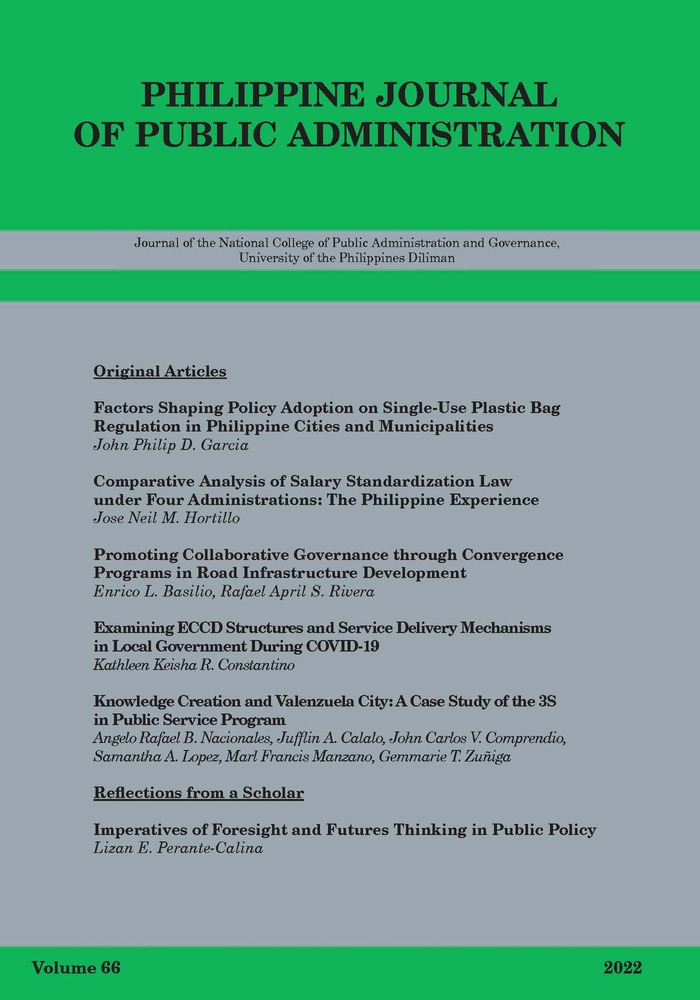Knowledge Creation and Valenzuela City: A Case Study of the 3S in Public Service Program
Abstract
The article uses the knowledge creation theory to explain the innovation process within the local government. It investigates the artifacts of an innovative program and traces the development process of the artifacts backward to reveal relevant activities and situational aspects. The activities are analyzed to determine whether they correspond to the four modes of knowledge conversion (i.e., socialization, externalization, combination, and internalization or SECI). Situations are examined to determine whether phronetic leadership abilities facilitate knowledge synthesis in the local government. For this case study, the researchers select the 3S in Public Service Program of Valenzuela City as the case and three managers as respondents. The study employs semi-structured interviews and document reviews and adopts a qualitative content analysis procedure to analyze the data. The findings reveal that the SECI processes manifest during the development and implementation of the 3S Program, and the chief executive is the most important driver of knowledge conversion. Future research on knowledge creation in the city can explore whether middle managers facilitate knowledge synthesis, selforganizing teams are present, and entities external to the organization (e.g., clients, suppliers, and developers) are impacted by and contribute to knowledge creation.



